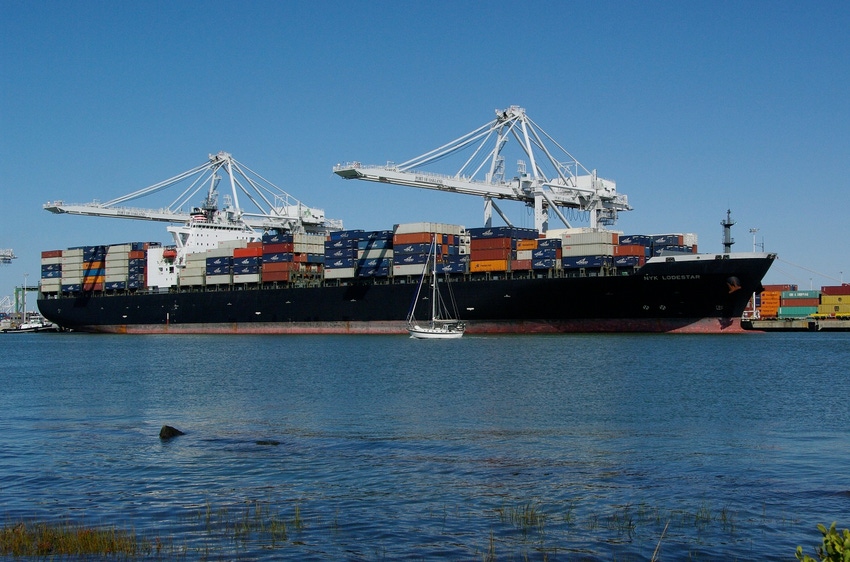As additional tariffs are phased out, U.S. agricultural exports to South Korea will grow further.

U.S. agricultural exports to South Korea have grown in recent years, largely due to tariff reductions and the lifting of non-tariff barriers. According to a report from the U.S. Department of Agriculture’s Foreign Agricultural Service (FAS), as additional tariffs are phased out, U.S. agricultural exports to Korea will grow further.
The Korea-U.S. Free Trade Agreement (KORUS) entered into force in 2012 and immediately removed tariffs on two-thirds of U.S. farm and food exports to Korea. Already, average U.S. exports to Korea have increased from $5.4 billion in the three-year period before KORUS implementation (2009-11) to $6.37 billion in the three years following implementation (2014-16).
With a population of 51 million and a growing middle class, Korea continues to be one of the top destinations for U.S. agricultural goods, ranking as America's sixth-largest market in 2016. The U.S. is Korea’s top agricultural supplier, providing 28% of the country’s farm imports.
When KORUS took effect in 2012, many tariffs immediately fell to zero, while others began a phase-out period. Many U.S. exports – including prepared foods, fresh fruits and distillers grains – saw the benefits immediately.
The two leading U.S. exports -- corn and beef -- declined in the initial years of implementation for reasons unrelated to the agreement, FAS explained in its report. U.S. corn production suffered from the historic 2012-13 drought, and as a result, U.S. corn exports to the world fell from 45 million metric tons in 2011 to 23 million in 2013. After U.S. corn production and exports recovered, U.S. corn regained its competitive edge in Korea as well, with exports rising 40%.
Korea is the second-largest importer of U.S. beef and beef products, behind Japan, with 17% of total U.S. beef exports shipped there in 2016.
In the two years prior to KORUS implementation, U.S. beef exports to Korea soared as the country faced its worst outbreak of foot and mouth disease in history. “This led to the culling of domestic herds and a resulting shortage in domestic production. Coincidentally, with the initiation of KORUS, U.S. beef exports fell in 2012 because Korean herd levels and beef production recovered to normal levels,” the report explained.
Since then, however, U.S. beef has benefited from increased price competitiveness and lower duties, thanks to KORUS. “As a result, U.S. beef and beef product exports to South Korea grew from $806 million in 2015 to $1.1 billion in 2016 -- an increase of 32%. Beef and beef products remain the top U.S. agricultural exports to South Korea,” FAS said.
Korea is the top destination for U.S. fresh cheese, taking 31% of all U.S. fresh cheese exports in 2016, with the U.S. holding a 45% market share in the country.
The report noted that, without KORUS, the U.S. would face higher duties than many of its competitors. It already has faced challenging market scenarios. As Korea signs new free trade agreements, the U.S. will continue to lose much of the tariff advantage it currently enjoys.
The tariff reductions offer the U.S. a competitive advantage. For instance, U.S. beef and beef products faced a 40% tariff rate before KORUS, but that will gradually be phased out over 15 years. In 2017, the current applicable tariff on U.S. beef is down to 24%. Meanwhile, Korea’s tariffs on Australian and Canadian beef are 29.3% and 32%, respectively.
“While Australia and Canada will also see their beef tariffs phased out, the United States has had a head start and will continue to have the lowest beef tariffs compared to Australia and Canada for a decade,” the FAS report stated.
Other exports, such as fresh cheese, fall under the tariff rate quota system. Currently, U.S. goods can enter Korea duty free up to the maximum volume permitted by the quota, with a duty charged on exports above the quota. However, based on KORUS, the tariff on U.S. fresh cheese will be phased out in 15 years, and all U.S. cheese will enter Korea duty free by 2026.
About the Author(s)
You May Also Like





